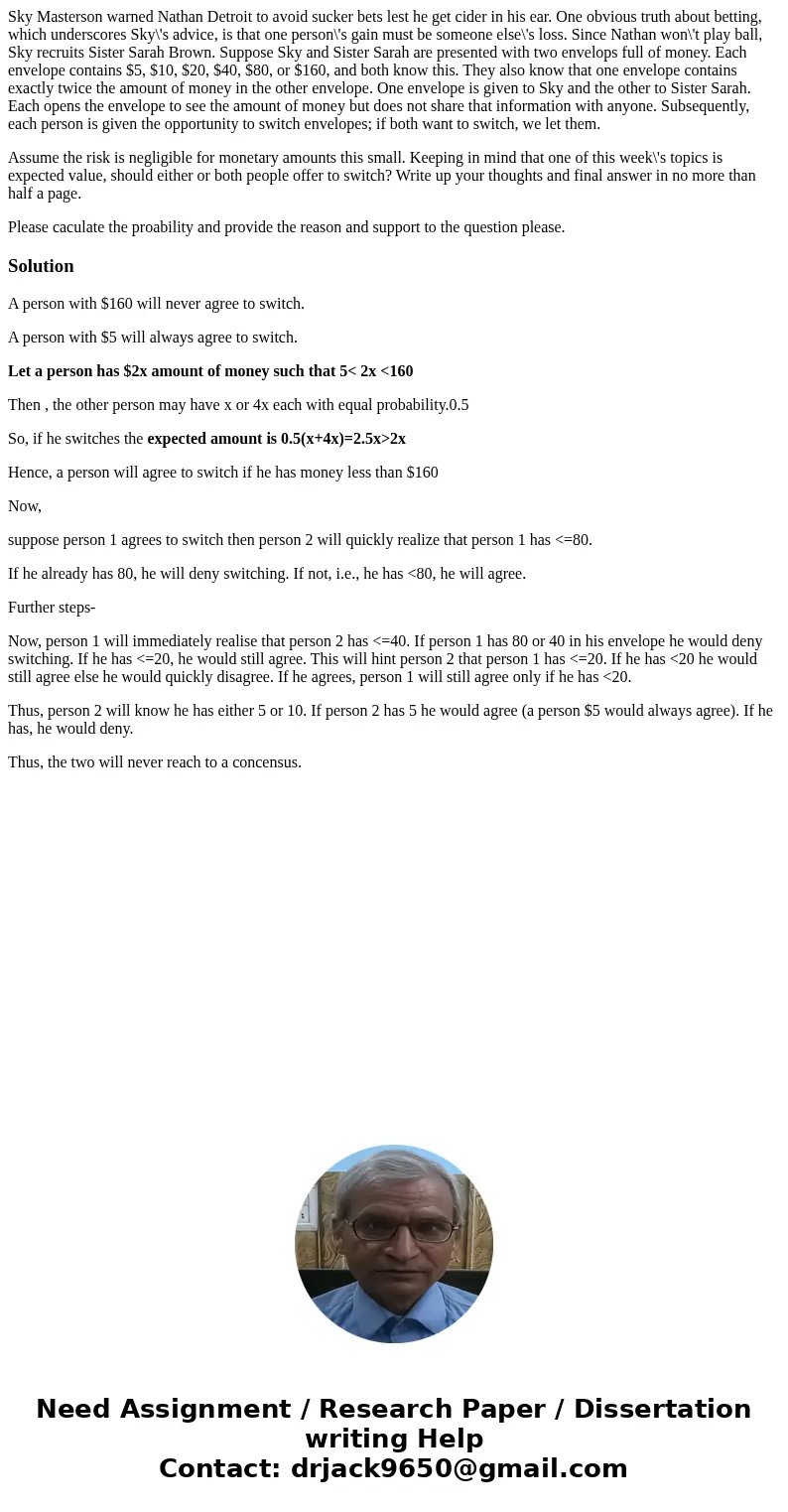Sky Masterson warned Nathan Detroit to avoid sucker bets les
Sky Masterson warned Nathan Detroit to avoid sucker bets lest he get cider in his ear. One obvious truth about betting, which underscores Sky\'s advice, is that one person\'s gain must be someone else\'s loss. Since Nathan won\'t play ball, Sky recruits Sister Sarah Brown. Suppose Sky and Sister Sarah are presented with two envelops full of money. Each envelope contains $5, $10, $20, $40, $80, or $160, and both know this. They also know that one envelope contains exactly twice the amount of money in the other envelope. One envelope is given to Sky and the other to Sister Sarah. Each opens the envelope to see the amount of money but does not share that information with anyone. Subsequently, each person is given the opportunity to switch envelopes; if both want to switch, we let them.
Assume the risk is negligible for monetary amounts this small. Keeping in mind that one of this week\'s topics is expected value, should either or both people offer to switch? Write up your thoughts and final answer in no more than half a page.
Please caculate the proability and provide the reason and support to the question please.
Solution
A person with $160 will never agree to switch.
A person with $5 will always agree to switch.
Let a person has $2x amount of money such that 5< 2x <160
Then , the other person may have x or 4x each with equal probability.0.5
So, if he switches the expected amount is 0.5(x+4x)=2.5x>2x
Hence, a person will agree to switch if he has money less than $160
Now,
suppose person 1 agrees to switch then person 2 will quickly realize that person 1 has <=80.
If he already has 80, he will deny switching. If not, i.e., he has <80, he will agree.
Further steps-
Now, person 1 will immediately realise that person 2 has <=40. If person 1 has 80 or 40 in his envelope he would deny switching. If he has <=20, he would still agree. This will hint person 2 that person 1 has <=20. If he has <20 he would still agree else he would quickly disagree. If he agrees, person 1 will still agree only if he has <20.
Thus, person 2 will know he has either 5 or 10. If person 2 has 5 he would agree (a person $5 would always agree). If he has, he would deny.
Thus, the two will never reach to a concensus.

 Homework Sourse
Homework Sourse